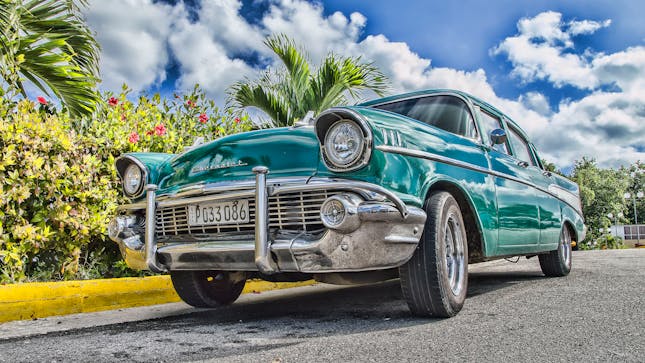Private plates are a fantastic way to add a personal touch to your vehicle. They’re not just for the wealthy or famous—anyone can invest in a unique registration number that reflects their personality, interests, or even their name. But while private plates are undeniably stylish, it’s crucial to understand the legal framework behind them. After all, the last thing you want is to face fines or have your plates revoked because they don’t comply with the law. So, how do you balance personalisation with legality?
Why Do People Love Private Plates?
First off, why are private plates so popular? For many, they’re a way to stand out on the road. Your car says a lot about you, so why not make it even more unique with a personalised plate? Whether it’s your initials, a favourite word, or a clever abbreviation, a private number plate will allow you to express yourself. They’re also an excellent investment—some plates increase in value over time, making them not just a personal statement but a potential financial asset.
But there’s more to private plates than style. They can also be practical. For example, if you own multiple vehicles or a fleet, private plates make it easier to identify them. They’re also great for businesses looking to add a professional touch to their branding.
Understanding the Legal Requirements
While personalisation is the main appeal, there’s a strict set of rules governing how private plates are displayed. Ignoring these rules isn’t just risky; it could land you in legal trouble. So, what are the basics?
- Correct Font and Spacing – The law requires private plates to follow a specific font style and size, as well as precise spacing between characters. Custom fonts or quirky spacing may look good, but they’re not allowed.
- Displaying Plates Clearly – Your plates must be easily readable to enforcement cameras and other road users. This means avoiding any alterations that could make them harder to read.
- Plate Material and Colour – Plates need to be made from reflective material, with a white front plate and a yellow rear plate. Any deviation from this could result in penalties.
- Banned Words or Offensive Combinations – The DVLA (Driver and Vehicle Licensing Agency) bans plates with offensive or inappropriate language. Make sure your chosen plate passes their approval.
If you’re unsure whether your design idea complies with these rules, consult the DVLA guidelines or speak to a trusted private plate supplier who understands the regulations.
Finding the Perfect Balance of Style and Compliance
Choosing a plate that’s both stylish and legal doesn’t have to be complicated. Start by considering what you want your plate to say about you. Do you want it to reflect your name, a nickname, or perhaps a hobby? Once you have an idea, check its availability. Remember, certain combinations are highly sought after and may already be taken—or come with a hefty price tag.
When designing your plate, always prioritise legality. Even a minor tweak to the font or spacing could result in your plates being deemed illegal. If you’re tempted to customise your plate beyond what’s allowed, ask yourself: is it worth the risk of fines or having your registration revoked?
How to Purchase Private Plates Legally
So, you’ve decided on your perfect plate—what’s next? Purchasing private plates isn’t as complicated as it might seem, but it’s essential to go through the proper channels. Here’s a quick breakdown:
- Buy from the DVLA – The DVLA is the most reliable and straightforward source for private plates. They hold regular auctions for exclusive plates, so it’s worth keeping an eye out for something that catches your attention.
- Use Reputable Dealers – If the plate you want isn’t available through the DVLA, trusted private plate dealers are another option. Just make sure they’re reputable and follow all legal processes.
- Transfer the Plate Correctly – Once you’ve purchased your plate, you’ll need to transfer it to your vehicle. This involves applying for a V778 retention document or V750 certificate of entitlement, depending on the situation. Don’t skip this step—it’s crucial for ensuring your plates are legally registered.
Tips for Maintaining Legal Plates Over Time
Buying legal plates is one thing, but keeping them compliant is just as important. Over time, plates can become damaged, faded, or even illegally altered. Regular maintenance ensures you avoid any issues. Keep an eye out for wear and tear, especially on reflective surfaces. If your plates are damaged or worn out, replace them promptly with legal replicas. Avoid any temptation to modify your plates post-purchase. This includes adding stickers, adjusting fonts, or making any cosmetic changes that could make them non-compliant.
The Perks of Getting It Right
Sticking to the rules might seem restrictive, but there’s a lot to gain from doing things the right way. Not only will you avoid fines and legal trouble, but you’ll also ensure that your private plates are a reflection of you—without compromising on compliance. Plus, legally displayed plates add to the overall value and appeal of your vehicle. If you ever decide to sell your car or transfer the plates, being able to demonstrate that they’ve always been legal will make the process smoother.
Final Thoughts: Style and Legality Go Hand in Hand
Private plates are a brilliant way to personalise your vehicle, but they come with responsibilities. By following the rules and prioritising compliance, you can enjoy the best of both worlds—style and legality. Whether you’re investing in a cherished plate for personal reasons or as a long-term asset, taking the time to understand the legal requirements is a must.





